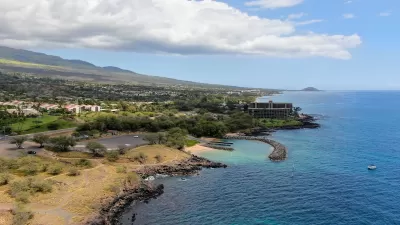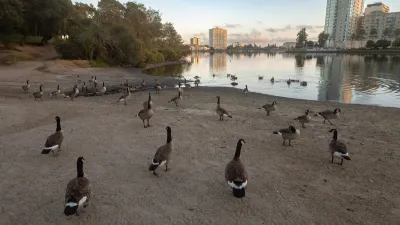Over the last several decades, researchers have examined how our cities deplete natural resources and change the climate and ecosystems of their surrounding areas. But new evidence shows that such impacts aren't a purely modern phenomenon.
"Writing for Nature’s Scientific Reports, a team led by David Kaniewski showed that the development of Akko, a port city along what is now Israel’s northern shores, coincided with a collapse of the local ecosystem, with dense coastal forests transforming into a dry, shrubby grassland," writes Colin Schultz for Smithsonian.com.
Researchers conclude that residents of Akko, one of the world’s oldest cities, taxed the local water supply and produced an urban heat island effect that helped transform the area's climate and ecosystem.
The results of their research helps to upend some common assumptions about the sustainability of ancient cities, say Kaniewski and his colleagues:
This questions the long-held belief of a ‘‘golden age’’ of sustainable early urban development. The same mechanisms that degrade or overexploit the ecosystems nowadays were already at work, even if technologies and agroinnovations were markedly different during the pre-industrial era. Accepting large urban concentrations might need to concede an intrinsic impossibility to produce locally sustainable development.
FULL STORY: Urbanization Has Been Destroying the Environment Since the Very First Cities

Trump Administration Could Effectively End Housing Voucher Program
Federal officials are eyeing major cuts to the Section 8 program that helps millions of low-income households pay rent.

Planetizen Federal Action Tracker
A weekly monitor of how Trump’s orders and actions are impacting planners and planning in America.

The 120 Year Old Tiny Home Villages That Sheltered San Francisco’s Earthquake Refugees
More than a century ago, San Francisco mobilized to house thousands of residents displaced by the 1906 earthquake. Could their strategy offer a model for the present?

Alabama School Forestry Initiative Brings Trees to Schoolyards
Trees can improve physical and mental health for students and commnity members.

NYC Outdoor Dining Could Get a Re-Do
The city council is considering making the al fresco dining program year-round to address cost concerns from small businesses.

HSR Reaches Key Settlement in Northern California City
The state’s high-speed rail authority reached an agreement with Millbrae, a key city on the train’s proposed route to San Francisco.
Urban Design for Planners 1: Software Tools
This six-course series explores essential urban design concepts using open source software and equips planners with the tools they need to participate fully in the urban design process.
Planning for Universal Design
Learn the tools for implementing Universal Design in planning regulations.
Ada County Highway District
Clanton & Associates, Inc.
Jessamine County Fiscal Court
Institute for Housing and Urban Development Studies (IHS)
City of Grandview
Harvard GSD Executive Education
Toledo-Lucas County Plan Commissions
Salt Lake City
NYU Wagner Graduate School of Public Service





























